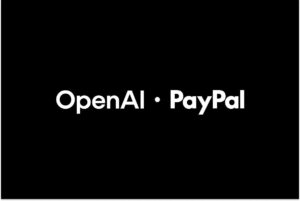There cannot be any doubt that the banking sector as whole is facing some headwinds and that is probably the reason why PSU banks have started to underperform. Right from rising cost of funds to higher operational cost to lower than expected growth. But the question is whether these troubles are of short term in nature and a phase of under performance gives an opportunity to long term investors or not. If the answer is yes then probably the decline is probably an opportunity for long term investors.
If one looks at the commentary of some of the banks coming with Q1 results, there are two things which stand out. First, after that credit growth is much better and second, which is probably more noticeable is that some of the banks are saying that their digital initiatives are now yielding results.
While to some it might appear to be a delayed result, but then once the digital initiatives have started to pay, probability of them staying for long is always high and one has to accept the fact that in PSU banks decision making is still bureaucratic when it comes to taking decisions on digital initiatives.
Now comes an important question of whether the banks are better placed in a better position than it was 5 years ago. The answer is clearly yes. Look at the chart below for trends in NPA, all the PSU banks have seen an improvement in their NPA’ condition, look at what they were in 2018 and what they are today. Why were they so high in 2018, because the government has decided that all what has been brushed under the carpet for years, should come out and be cleaned up. No shying away from the real situation. Today, the picture is much cleaner and believable. When we say believe able it means that the street is sure that the NPA is being shown as 1 percent or around it in reality also that is the number and not more than that.
Now coming to the growth. If one looks at trends, It appears that PSU banks decided to go for better quality of growth rather than just overall growth. Is it a sensible strategy, surely yes. Because capital is always a scarce resource, it will remain in demand. It is a banker’s job that credit should be given so that at the time of getting it back, there should not be an issue.
There is a higher probability that credit off take is likely to increase, if one looks at the budget numbers, the government spending continues to be high and the fiscal deficit is in a comfortable position. If one looks at the loan book of the PSU banks, a big chunk of it has been coming from financing infrastructure projects or the manufacturing sector. Because government spending is high, the growth is likely to continue. In case of manufacturing, while it has picked pace, it has not been to that extent. But with stability in policy making, there are
noises about private sector capital expenditure restarting once again which means wholesale credit picking up, which again is positive for PSU banks, because of their large balance sheet size.
But there are risks, from a fundamental point of view, the biggest risk is that for any reason if there is slowdown and the capex cycle does not pick up, then because the street is pricing in higher credit off take then stocks could see a slip.
The problem for banks is that an economic slowdown not only slows the new business, but the NPA tends to move up. Third risk, which is probably a good problem to have is that when credit off picks up, these banks would require additional capital and that would increase the float in market. In the past there have been phases, that when capital is raised it leads to increased float and leads to a phase of under performance on the street. But if the earnings are able to catch up then this phase is covered up.
So, in the short term the cost of funds will remain high, but in the long run, it is structural change that has taken place which is merger, bank balance sheet becoming larger that is what will impact the stock performance and on those parameters, things are far better.
The stocks collated with data from the latest Stock Reports Plus report dated Sep 7, 2024
About Companies
Union Bank of India Limited is a banking company. The Company’s segments include Treasury Operations, Corporate and Wholesale Banking and Other Banking Operations. The Company offers products in three categories, including personal, corporate loans and international. Its personal products include accounts and deposits, loans, which includes retail, micro, small and medium enterprises (MSME), wealth management, financial schemes and lockers/other services. Its corporate loans include trade finance, working capital, line of credit, project financing, and channel finance. Its international services include non-resident Indian speedy and easy remittances, Internet Banking, international debit/credit cards, home loans, special deposit schemes, and online donation facility. It provides digital services, such as app banking, Internet banking, automated teller machine banking and immediate payment service (IMPS). It also provides foreign currency loans.
Bank of India Limited (the Bank) is a bank. Its segments include Treasury Operations, Wholesale Banking Operations and Retail Banking Operations. The Treasury Operations segment includes the investment portfolio, such as dealing in government and other securities, money market operations and forex operations. The Wholesale Banking Operations segment includes all advances, which are not included under retail banking. The Retail Banking Operations segment includes exposures, which fulfil two criteria, including exposure (the maximum aggregate exposure of approximately five crore rupees), and the total annual turnover is less than approximately 50 crore rupees, which means the average turnover of the last three years in case of existing entities and projected turnover in case of new entities. It has over 5000 branches in India, including specialized branches. Its subsidiaries include BOI Shareholding Limited and BOI Star Investment Managers Private Limited, among others.
Canara Bank Ltd. is a bank. The Bank’s segments include Treasury Operations, Retail Banking Operations, Wholesale Banking Operations, Life Insurance Operation and Other Banking Operations. The Bank provides personal banking, corporate banking, non-resident Indians banking, Internet banking, and micro, small and medium enterprises (MSME) banking services. Its retail lending operations include education loans, vehicle loans, housing loans and other personal loans. Its other services include merchant banking, bancassurance and mutual funds and government business. The Bank undertakes government business, comprising direct and indirect tax collections; payment of Central Government and State Government Pensions; handling of postal transactions and State Government treasury transactions; public provident fund scheme and senior citizens’ saving scheme, and issuing Sovereign Gold Bonds and Sukanya Samridhi Scheme. It has approximately 10,416 domestic branches.
Bank of Baroda is engaged in providing banking and financial services in India. Its segments include Treasury, Corporate / Wholesale Banking, Retail Banking and Other Banking Operations. Its geographical segment includes Domestic Operations and Foreign Operations. It offers personal banking services, which include savings accounts, current accounts, and term deposits. It provides a range of digital products, which includes instant banking, such as Internet banking, mobile banking, cards, WhatsApp banking, digital signage systems (DSS), self-service passbook printers, and automated teller machines (ATMs). It offers a range of loans, such as home loan, personal loan, vehicle loan, fintech, education loan, and gold loan. It provides merchant payment solutions, Baroda DigiNext Cash Management Services, BarodaINSTA SmartTrade, Bharat Bill Pay, Bhim Adhaar Baroda Pay and Internet Payment Gateway. It has 8,185 branches and 11,535 ATMs and cash recyclers supported by self-service channels..
State Bank of India is a banking and financial services company. The Company’s segments include Treasury, Corporate/Wholesale Banking, Retail Banking and Insurance Business. The Treasury segment includes the entire investment portfolio and trading in foreign exchange contracts and derivative contracts. The Corporate/Wholesale Banking segment comprises the lending activities of corporate accounts group, commercial client’s group and stressed assets resolution group. The Retail Banking segment comprises retail branches, which primarily includes personal banking activities, including lending activities to corporate customers, and also includes agency business and automated teller machines (ATMs). The Insurance Business segment comprises the results of SBI Life Insurance Co. Ltd. and SBI General Insurance Co. Ltd. It is involved in providing a range of products and services to individuals, commercial enterprises, large corporates, public bodies and institutional customers.
Punjab National Bank (the Bank) is a bank. The Bank’s segments include Treasury, Corporate/Wholesale banking, Retail banking and Other banking operations. The Treasury segment includes the entire investment portfolio and trading in foreign exchange contracts and derivative contracts. The Bank provides various banking services, such as agriculture banking, retail banking, treasury operations, corporate banking, merchant banking, non-resident Indian (NRI) services, depository services, digital banking services and mutual funds. Its depositary services include current deposits, savings deposits, term deposits, recurring deposits, Capital Gain Account Scheme and Gold Monetization Scheme. Its loan portfolio includes retail loans, agriculture loans, micro, small and medium enterprises (MSME) loans and corporate loans. Its other services include cash management services, export/import finance, gold card scheme for exporters, doorstep banking service and online trading.
UCO Bank is a commercial bank. The Bank’s segments include Treasury Operations, Corporate Banking Operations, Retail Banking Operations and Other Banking Operations. The Bank offers personal banking, corporate banking, international banking and rural banking services. The Bank’s personal banking includes deposits, loans/advances and debit card; corporate banking includes loans/advances, deposits, value-added services, and micro and small enterprises (MSME); international banking includes foreign currency loans and remittances, and rural banking includes agriculture credit, financial inclusion and MSME. The Bank’s loan portfolio includes education loan, gold loan, home loan, personal loan and car loan. Its other services include government business, policies and equated monthly installment (EMI) calculator.
Indian Overseas Bank (the Bank) is engaged in the business of banking. The Bank’s segments include Treasury, Corporate/Wholesale Banking, Retail Banking and Other Banking Operations. Its operations consist of domestic deposits; domestic advances; foreign exchange operations; investments; micro, small and medium enterprises, including MUDRA Loan Scheme; retail banking, including Arogya Mahila Savings Bank Accounts; Mid Corporate department; agricultural credit portfolio; loans to small and marginal farmers; loans to non-corporate farmers, and microfinance. Its personal banking services include saving bank, current account, term deposit, retail loans, and mortgages and depository services. It offers merchant banking for issues, debenture trustee, dividend/interest warrant and others. It also offers Internet and mobile banking services. It overseas branches with operations in Singapore, Sri Lanka, Hongkong and Bangkok.
Central Bank of India Ltd. is a commercial bank. The Company offers various banking services, including digital banking; deposits; retail loans; agriculture; services for micro, small and medium enterprises; corporate loans; services for non-resident Indians (NRIs); services for pensioners. Its digital banking services include Internet Banking, Mobile Banking, Cent M-Passbook, Debit Cards, Credit Cards, Missed call Facility, Railways Ticket Booking (IRCTC), automated teller machine and Point of sale Machine. Its deposits services include SB Accounts, Current Accounts, Time Deposits, Recurring Deposit Scheme, Small Saving Scheme and Interest Rate on Deposits. Its Retail Banking services include Housing Loans, Vehicle Loans, Education Loans, Personal/Gold Loans, Loan To Senior Citizen and Loan Against Property-Personal Needs. Its agriculture services include Central Kisan Credit Card, Sent Agri Gold Loan Scheme, Sent SHG Bank Linkage Scheme, CENT AGRI INFRA Scheme and others.
Source for About Companies: SR Plus
Check out Stock Reports Plus, powered by Refinitiv, for price targets of over 4,000 listed stocks along with detailed company analysis focusing on five key components – earnings, fundamentals, relative valuation, risk and price momentum to generate standardized scores. SR+ Reports is a complimentary offering to ETPrime members. Click here to know more.
Disclaimer: The views, scores, research and investment tips expressed herein are not that of Economic Times (“ET”) or its management and have been gathered from various third-party sources. ET does not guarantee the accuracy, adequacy or completeness of any information and is not responsible for any errors or omissions or for the results obtained from the use of such information. The content provided herein including any output of tools/analysis is for informational purposes only and should not be relied upon or construed as an investment advice. ET advises users to check with a certified professional before making any investment decision.










